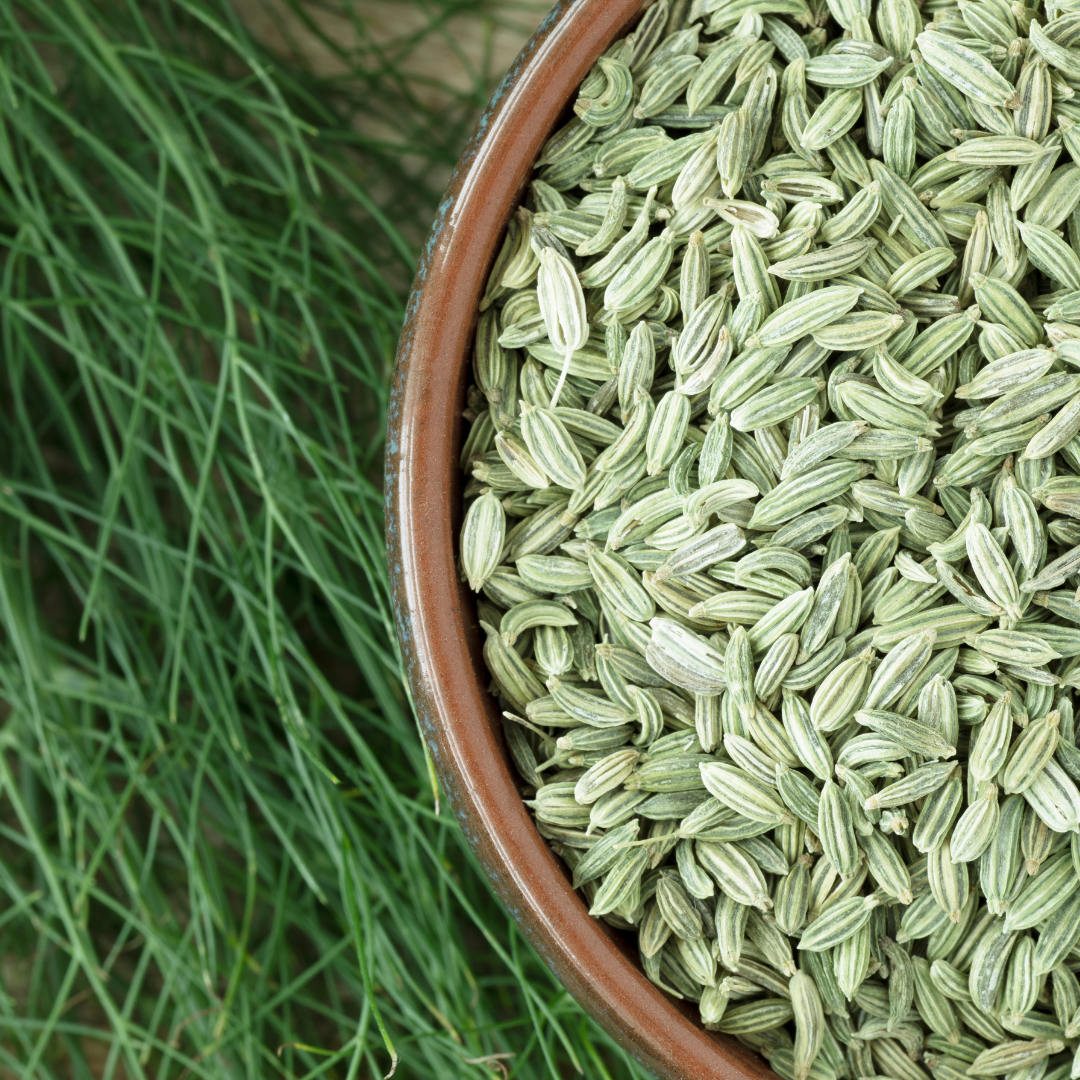
Fennel Seed
Scientific Name: Foeniculum vulgare
Common Name: Fennel Seed
Health Benefits:
Supports Digestive Health:
- Relaxes the gastrointestinal muscles, helping to reduce bloating, gas, and cramping.
- Stimulates digestion by increasing the secretion of digestive enzymes.
Promotes Hormonal Balance:
- Contains phytoestrogens, plant compounds that mimic estrogen, which may help alleviate symptoms of hormonal imbalance such as menstrual discomfort or menopause-related issues.
Anti-Inflammatory Properties:
- Rich in antioxidants that combat oxidative stress and reduce inflammation in the body.
Supports Respiratory Health:
- Fennel seeds are traditionally used to soothe coughs and clear mucus from the airways.
May Aid in Weight Management:
- Acts as a natural appetite suppressant and promotes metabolism, supporting weight control.
Vitamins and Minerals:
- Vitamin C: Boosts immunity and promotes skin health.
- Potassium: Helps regulate blood pressure and maintain electrolyte balance.
- Magnesium: Supports muscle function and nerve signaling.
- Iron: Essential for oxygen transport in the blood.
Active Compounds:
- Anethole: The primary active compound responsible for fennel’s sweet, licorice-like aroma and many of its health benefits, including its antispasmodic and antimicrobial properties.
- Estragole: A compound with mild sedative and anti-inflammatory effects.
- Fenchone: Supports digestion and respiratory health.
Safety Information:
Allergic Reactions:
Rare but possible, particularly in individuals allergic to carrots, celery, or other plants in the Apiaceae family.
Hormonal Sensitivity:
- Due to its phytoestrogen content, fennel may not be suitable for individuals with hormone-sensitive conditions such as certain cancers.
Usage Guidelines:
- Safe when consumed in culinary amounts or as a tea.
- High doses or concentrated supplements should be used with caution and under medical supervision.
Parts of the Plant Used:
- Seeds: Commonly used for digestive and respiratory health, as well as flavoring.
- Bulb: Eaten as a vegetable, rich in nutrients and fiber.
- Leaves: Used as a garnish or herb in cooking.
Fun Fact:
In ancient Greece, fennel was associated with strength and courage and was used to crown victorious athletes.
Note:
This information is for educational purposes only and is not intended to replace medical advice. Always consult with a healthcare professional before using herbal products, especially if you are pregnant, nursing, or taking any medications.



